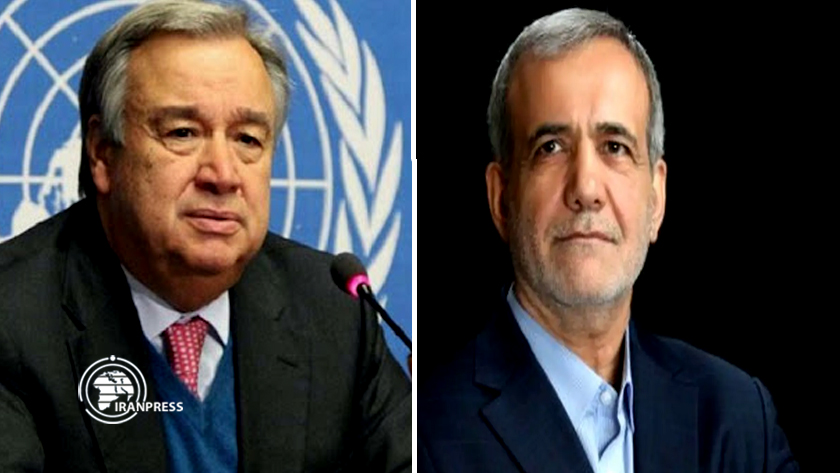Iran’s New President Pezeshkian Takes Office with High Hopes from UN Chief Guterres
In a notable development, the United Nations Secretary-General António Guterres has extended a welcoming message to Iran’s newly elected President, Pezeshkian, emphasizing the importance of cooperation to address regional challenges and advance global peace.
UN Anticipates Active Collaboration with Iran
Guterres expressed that the United Nations eagerly anticipates working closely with Iran under Pezeshkian’s leadership to tackle significant regional crises. According to Guterres, Iran’s strategic position and influence in the Middle East make its cooperation vital for maintaining stability and averting new conflicts that could potentially jeopardize both regional and global security.
The UN Chief highlighted that Iran’s active engagement is crucial for the success of the sustainable development goals (SDGs). The United Nations has been steadfast in supporting Iran’s endeavors to meet these objectives, aiming for a future of economic growth, social inclusion, and environmental sustainability.
Electoral Victory and Swearing-In
Pezeshkian’s rise to the presidency follows a decisive victory in the July 5 run-off election, where he secured 16,384,403 votes out of a total of 30,530,157. Today marks his official swearing-in ceremony before the Iranian parliament, signifying the start of his administration as the ninth president of the Islamic Republic of Iran.
Historical Context and Future Prospects
Iran has been a pivotal player in Middle Eastern geopolitics, with its actions and policies having far-reaching implications. In recent years, the country has engaged in complex negotiations surrounding its nuclear program, ongoing regional conflicts, and economic sanctions imposed by the international community.
The new administration under President Pezeshkian inherits a challenging landscape. Nonetheless, there is cautious optimism about potential reforms and diplomatic engagements, especially given Guterres’ emphasis on Iran’s role in fostering peace and stability.
The international community, particularly Europe, appears to be watching closely. French President Emmanuel Macron has already signaled Europe’s readiness to improve relations with Iran, suggesting a window of opportunity for enhanced diplomatic ties and mutual cooperation.
Conclusion
As Pezeshkian embarks on his presidential tenure, the expectations are high both domestically and internationally. With the United Nations expressing a clear intent to collaborate, the coming years could be pivotal in shaping not only Iran’s future but also the broader geopolitical dynamics of the Middle East.
For more information on Pezeshkian and the latest developments in Iran, visit the official website.
This high-level engagement between the United Nations and Iran underlines the critical role that diplomatic cooperation plays in addressing global challenges, promoting peace, and achieving sustainable development. All eyes are now on Pezeshkian’s next moves as he takes up the reins of leadership amidst significant expectations and responsibilities.
